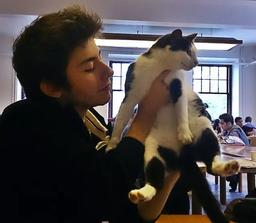| Question | Answer |
|---|---|
| novelLITERATURE | roman |
| tale, narrative, short story | öykü |
| story, narrative | hikaye |
| modern | modern |
| dream, imagination | hayal |
| character | karakter |
| to pay attention (to something), to be careful (for something) | dikkat etmek |
| Authors, when writing a novel, should pay attention to the story and to the characters. | Yazarlar roman yazarken, hikayeye ve karakterlere dikkat etmeli. |
| interest, attention; relevancy | ilgi |
| interesting, quaint | ilginç |
| soul | ruh |
| season | sezon |
| psychological, spiritual | ruhsal |
| preference, choice | tercih |
| to prefer | tercih etmek |
| This season, readers prefer interesting psychological novels. | Bu sezon okurlar ilginç ruhsal romanları tercih ediyor. |
| enjoyment, pleasure, taste | zevk |
| My taste and yours are different | Benim zevkim ile seninki farklı. |
| in the end, at last, eventually | sonunda |
| In the end this is a matter of taste. | Sonunda bu bir zevk meselesi. |
| role, status | rol |
| to take part, to contribute | rol almak |
| work of art, creation, oeuvre | eser |
| [Apparently] None of the characters took an important part in this work of art. | Hiçbir karakter bu eserde önemli bir rol almamış. |
| style, manner, method, way | tarz Way as in way of doing things. |
| to notice, to note, to realize | fark etmek |
| [Apparently] In his last shortstory, the author's style has changed. Did you notice? | Son öyküsünde yazarın tarzı değişmiş. Fark ettiniz mi? |
| sentencelinguistic | cümle |
Your questions are stored by us to improve Elon.io

